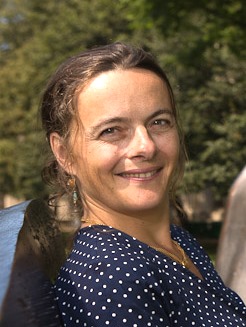
distinguished lecture series presents
Alice Guionnet
MIT
Research Area
Probability theory, in particular on large random matrices
Visit
Tuesday, May 8, 2018 to Thursday, May 10, 2018
Location
Kinsey 1240B/ MS 6627

distinguished lecture series presents
Probability theory, in particular on large random matrices
Tuesday, May 8, 2018 to Thursday, May 10, 2018
Kinsey 1240B/ MS 6627

 Amie Wilkinson
Amie Wilkinson